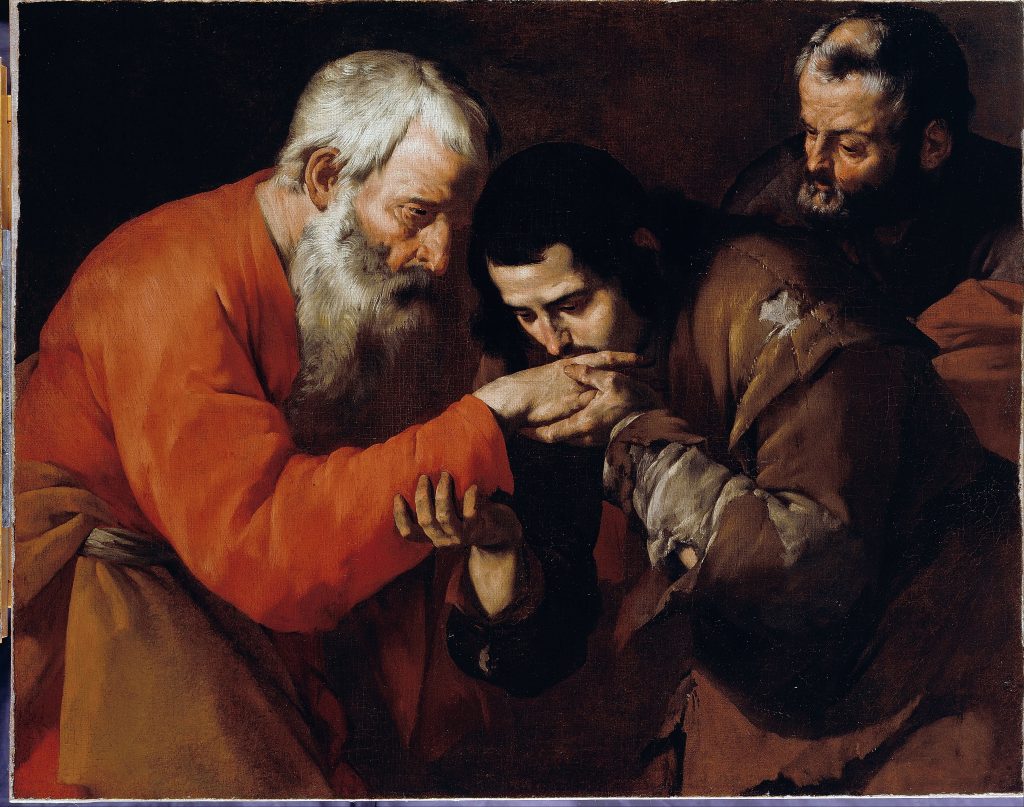According to the Bible, there’s a secret that’s hidden from the amoral, known only by the virtuous. The Book of Wisdom tells us that when we are not virtuous, “we do not know the hidden counsels of God, nor do we grasp the recompense of holiness, nor discern the innocent soul’s reward.”
How true! How hard it is to know, existentially grasp, actually believe, that virtue is its own reward and the highest happiness. We envy the amoral and pity virtue. Nikos Kazantzakis once remarked that virtue sits itself on the highest branch on a tree, looks out at all it has missed, and weeps.
What’s to be said about this? Who ultimately misses out on life?
A generation ago, Piet Fransen wrote a classic book on grace (“The New Life of Grace”), which for years was a standard textbook in seminaries and theology schools. He begins his treatise on grace this way. Imagine a man who is entirely careless about all things moral and spiritual. His only interest is his own pleasure. He lives for pleasure, ignoring all the commandments. He has multiple sexual affairs, never denies himself any pleasure available to him, and lives like this for his whole life until, just before his death, he realizes his irresponsibility, repents of his ways, makes a good confession, and dies in the arms of God and the Church.
Fransen then makes this comment. If, even for a minute, you felt some envy (“The lucky guy, he got away with this his whole life and then dies and still gets to go to heaven!”), you have never really understood grace. Rather, you are like the older brother of the prodigal son, angry with God for welcoming back a wayward son who had forsaken him to pursue a life of pleasure while you, the faithful son or daughter, have stayed home and dutifully renounced many pleasures to be faithful.
When we are the older, duty-laden brother or sister of the prodigal son, virtue is seldom felt to be its own reward, nor indeed a reward of any kind. Mostly no one believes the hidden counsel of God that the highest recompense is awarded for holiness and innocence of soul. Rather, most of us stand somewhat angry and bitter in our fidelity, envious of our unvirtuous brothers and sisters.
Why? If virtue is its own reward and the highest reward of all, why do we, like the older brother of the prodigal son, so often envy the excitement and pleasure we imagine fills the lives of those who have forsaken virtue for the pleasures of this world?
The reasons are complex. First, there’s human nature itself. We aren’t simply spiritual, faith-filled beings, but also mammals, creatures of flesh and blood, with powerful innate instincts. There is a strong unyielding part inside us that wants to taste every pleasure, irrespective of morality. That’s in our hardwiring. Part of us finds it almost impossible not to envy those who give themselves over to pleasure and, seemingly, get away with it.
Moreover, it’s precisely this part of us that does not understand grace or happiness. When the older brother of the prodigal son expresses his frustration to his father, a frustration that does little to conceal his secret envy, his father’s answer reveals the hidden counsel of God. The father tells his elder son that they need to be happy that his brother has come back home because he was dead. What might look to our human instincts as an enviable fling, a happy carefree time away from morality, is not in fact a joyous, life-giving, happy thing at all, but a time of being dead to most everything that constitutes actual happiness.
Superficially, it can look like the prodigal son got away with something, a fling, a free season of pleasure, that we secretly wish we had enough nerve to do ourselves. However, as the image of eating with pigs and growing desperate for the food in his father’s house graphically depicts, the wayward son was, whatever the pleasures his prodigal life afforded him, far, far from happy. Sin, like virtue, is also its own reward.
When we envy the amoral, we have not yet understood grace or happiness. Should we die in this ignorance, we will no doubt be a bit disconcerted when we get to heaven and meet an infamous sinner there. After being faithful ourselves, we might angrily ask, “How did he get in here, given how he lived his life?” Conversely, if we have understood grace and what makes for actual happiness, we will instead feel both gratitude and relief in seeing that infamous sinner and say instead, “God, I’m glad he made it! I was worried about him.”
Sin is its own punishment and virtue is its own reward. At the end of the day, nothing feels better than virtue and nothing feels worse than sin. However, that doesn’t make easy peace with our natural instincts; it’s a truth that can only be grasped by living it.

